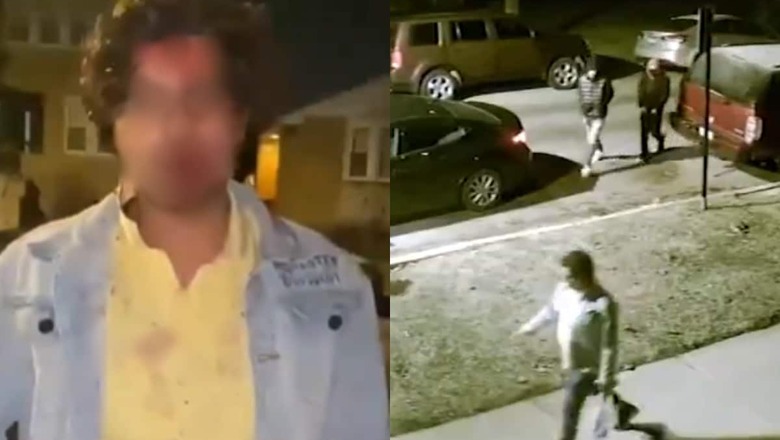
views
Amid concerns over a string of deaths among Indian students in the US, a prominent community leader has said his organisation is dealing with at least one such tragic case a day and underscored the need for creating awareness among immigrants from India to ensure their safety.
“Not to exaggerate, but we deal with at least one death a day across the country and mostly among young students or H-1B employees who have recently immigrated” to the US from India, Mohan Nannapaneni, founder of volunteer-based nonprofit organisation TEAM Aid, told PTI in an interview on Wednesday. The H-1B visa is a non-immigrant visa that allows US companies to employ foreign workers in speciality occupations that require theoretical or technical expertise. Technology companies depend on it to hire tens of thousands of employees each year from countries like India and China.
TEAM Aid is a one-of-its-kind organisation whose primary focus is to help members of the Indian community who are either travelling or living abroad and face dire situations such as accidents, suicides, homicides or sudden death of loved ones. Nannapaneni said it is very tragic to see that lately many students from India are “getting into trouble” and unfortunately some have passed away. “But it’s not recent. If you look at the history, it’s been happening for many years and I have been actively involved since 2001 in helping the community,” he said.
He said there have been instances of Indian students tragically passing away due to car accidents and drowning. He raised concern that drug abuse is becoming rampant across the US and unfortunately, there have been cases of Indian students succumbing to drug abuse and overdose. TEAM Aid has nearly 3,000 volunteers across the US as well as in about 25 countries and it works with Indian embassies and consulates and community organisations to provide help.
“We become their extended family and a bridge between the impacted individual and families in India,” Nannapaneni said, adding that the organisation does “whatever is necessary” to help families and individuals cope with dire situations, including helping to send bodies back to India, performing local funerals or helping in hospitals. In the past few weeks, a string of deaths among Indian students in the US has caused deep concern.
Last month, 25-year-old Indian student Vivek Saini was hammered to death by a homeless drug addict in Georgia. Syed Mazahir Ali, pursuing a Masters in IT, was brutally attacked by unidentified men near his house in Chicago. Sameer Kamath, an Indian-origin student, was found dead in the woods in Indiana this week. Authorities said he died from a self-inflicted gunshot wound to the head.
Nannapaneni said his organisation is dealing with cases of “voluntary and involuntary” deaths among students from India. “I’m very sorry to see that a lot of young students are committing suicide for various reasons,” he said. He noted that parents spend an enormous amount of money to send their children abroad to study but lack of employment opportunities causes stress among students, some of whom resort to extreme steps like suicide.
Studying in the US does not guarantee an H-1B work visa and this puts tremendous pressure on youngsters who sometimes take up odd jobs like working at gas stations, or even illegal work, to remain in the US rather than returning to India. Sounding an alarming note, Nannapaneni said that instances of suicides among students are “only a tip of the iceberg. Unfortunately, we are going to see more and more such cases.
“This has to be stopped,” he said, adding that students must be made aware that there are not enough opportunities for everyone and they should be prepared to go back to India after completing their education in the US. “My suggestion is that students should not put themselves at risk or take up illegal, risky jobs. Your parents have a lot of expectations and you’re their hope,” he said.
Causes of involuntary deaths include car accidents, drowning, drug abuse and mental health issues. “Unfortunately right now in America, we see the problem of drug abuse. A lot of fake drugs are available in the market and they’re killing people.” Instances of targeted or racially-motivated attacks against Indian students, and workers are isolated, he said.
“There are a lot of second-generation Indian kids here too” but the mortality is higher for students coming from India as compared to those born and brought up here. This can be attributed to “lack of education and lack of understanding about the society. If this changes, definitely, we can prevent these fatalities, he said.
Nannapaneni stresses that students should not fall into the trap of “educational consulting agencies” which make grand promises of enrolling students in American universities and institutions that turn out to be fake or junk, leaving the students high and dry. Students should conduct a thorough evaluation of the institutes they plan to attend, their credentials and employment prospects before using their families’ hard-earned money to come to the US.
There are tremendous opportunities available in India, which is a growing economy and students should assess this instead of blindly following a trend to pursue education abroad, he said. Community leader Prem Bhandari, who supports TEAM Aid as a volunteer, said students should register with Indian embassies and consulates so that they remain in constant touch and can be contacted in emergency situations.
TEAM Aid plans to organise webinars to educate students on how to live safely in the country, find the right job opportunities and connect with community leaders and organisations who are willing to help them. “You need to be diligent and responsible when you come to a foreign land. You need to be careful, respect the laws of the land and don’t indulge in things that risk your life. Think constantly about the hopes that your parents have from you. That’s the message I would like to give to the students,” Nannapaneni said.




















Comments
0 comment